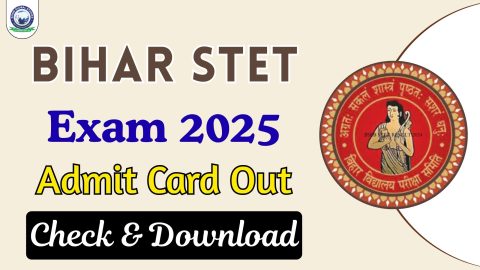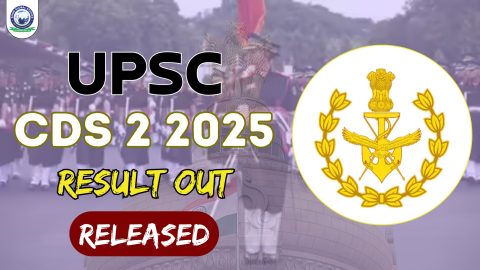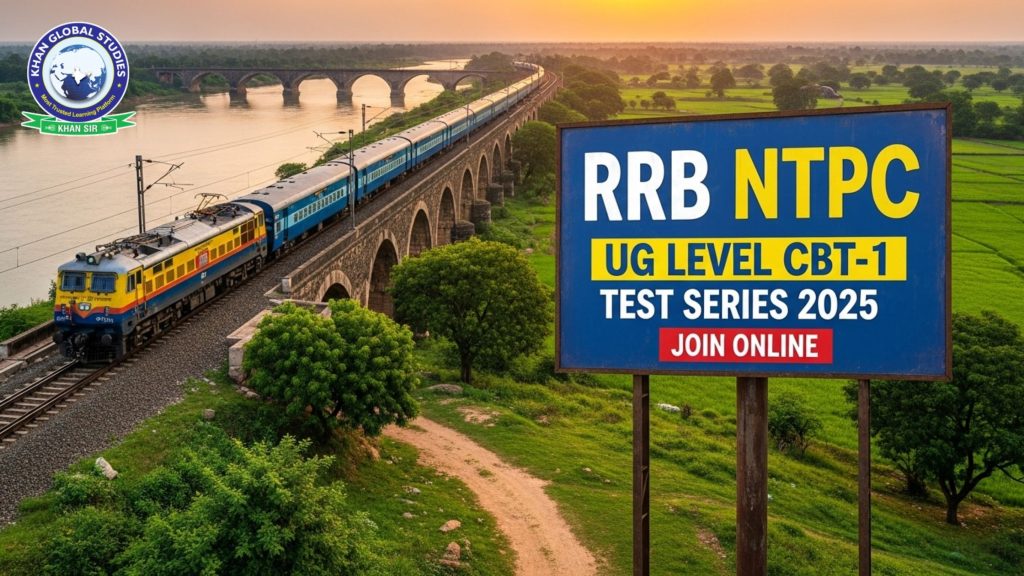Join RRB NTPC CBT-1 2025 Online Test Series UG Level: The Railway Recruitment Board Non-Technical Popular Categories (RRB NTPC) examination represents one of India’s most competitive recruitment processes, attracting millions of aspirants annually. With the 2025 examination approaching, candidates need strategic preparation methods that align with the latest exam patterns and requirements.
This comprehensive guide explores proven strategies for excelling in RRB NTPC CBT-1 2025, covering everything from understanding the exam structure to implementing effective study techniques. Whether you’re a first-time candidate or attempting the exam again, these insights will help you optimise your preparation and maximise your chances of success.
Understanding the RRB NTPC CBT-1 Exam Structure
The Computer Based Test (CBT-1) serves as the first stage of the RRB NTPC selection process. This preliminary examination tests candidates across multiple subjects within a time-bound environment, making both accuracy and speed essential for success.
The exam typically consists of 100 questions to be completed in 90 minutes, covering General Awareness, Mathematics, and General Intelligence & Reasoning. Each section carries equal weightage, requiring candidates to maintain consistent performance across all subjects rather than focusing on any single area.
Understanding the marking scheme proves crucial for strategic preparation. The examination follows a negative marking system where incorrect answers result in point deductions, making accuracy more valuable than attempting all questions. This structure rewards careful preparation and strategic question selection during the actual exam.
Key Subject Areas and Their Importance
General Awareness
This section encompasses current affairs, static GK, and subject-specific knowledge relevant to railway operations. Candidates must stay updated with recent developments in politics, economics, sports, and technology whilst maintaining strong foundational knowledge of Indian history, geography, and polity.
The dynamic nature of current affairs requires consistent daily reading and revision. Successful candidates typically dedicate 30-45 minutes daily to current affairs, focusing on events from the past 12-18 months that hold national or international significance.
Mathematics
Mathematical problems in RRB NTPC CBT-1 test fundamental concepts rather than advanced calculations. Topics include arithmetic, algebra, geometry, and basic statistics. The key lies in mastering time-saving techniques and shortcuts for common problem types.
Regular practice with timed sessions helps build both speed and accuracy. Candidates should focus on understanding underlying concepts rather than memorising formulas, as this approach proves more effective during pressure situations.
General Intelligence & Reasoning
This section evaluates logical thinking, pattern recognition, and analytical skills. Topics range from verbal reasoning to non-verbal patterns, requiring diverse preparation strategies.
Visual learners often excel in non-verbal reasoning sections, whilst those with strong language skills may find verbal reasoning more manageable. Identifying personal strengths and weaknesses helps optimize study time allocation.
Effective Study Strategies for Success
Time Management Techniques
Creating a structured study schedule ensures comprehensive coverage of all subjects without overwhelming any single area. Successful candidates typically allocate 40% of study time to their weakest subject, 35% to moderate subjects, and 25% to their strongest areas.
Daily study sessions should include dedicated time slots for each subject, with regular breaks to maintain concentration levels. The Pomodoro Technique, involving 25-minute focused study sessions followed by 5-minute breaks, proves particularly effective for sustained learning.
Mock Test Strategy
Regular mock tests simulate actual exam conditions, helping candidates develop time management skills and identify knowledge gaps. The ideal approach involves taking one full-length mock test weekly, followed by thorough analysis of performance patterns.
Post-test analysis should focus on identifying recurring mistake patterns rather than simply reviewing incorrect answers. This approach helps develop strategic improvements for future attempts.
Revision Techniques
Effective revision requires structured approaches that reinforce learning without causing information overload. The spaced repetition method, where topics are reviewed at increasing intervals, helps transfer information from short-term to long-term memory.
Creating concise notes and mind maps during initial learning phases provides quick reference materials for final revision periods. Visual aids prove particularly helpful for retaining complex information and making connections between different topics.
Utilising Technology and Online Resources
Test Series Benefits
Online test series provide access to unlimited practice questions modelled on actual exam patterns. These platforms offer detailed performance analytics, helping candidates track progress and identify improvement areas.
The RRB NTPC CBT-1 2025 test series offered by Khan Global Studies includes 10 comprehensive mock tests designed to mirror the actual examination environment. Each test provides detailed solutions with shortcuts and explanations in both Hindi and English, catering to diverse learning preferences.
Mobile Learning Applications
Smartphone applications enable flexible study schedules, allowing candidates to utilise commute time and brief intervals for productive learning. These platforms typically offer bite-sized lessons and quick revision materials optimised for mobile consumption.
The key lies in selecting applications that provide genuine educational value rather than superficial coverage. Look for platforms offering detailed explanations, progress tracking, and personalized learning recommendations.
Online Discussion Forums
Engaging with fellow aspirants through online forums provides diverse perspectives on challenging topics and study strategies. These communities often share valuable resources, updates about examination patterns, and motivational support during preparation phases.
Active participation in study groups, whether online or offline, creates accountability systems that help maintain consistent preparation schedules. Explaining concepts to others also reinforces personal understanding and identifies knowledge gaps.
Common Mistakes to Avoid
Over-Reliance on Coaching Materials
Whilst coaching materials provide structured learning paths, excessive dependence without understanding fundamental concepts proves counterproductive. Successful candidates combine coaching resources with self-study and critical thinking exercises.
The most effective approach involves using coaching materials as guides whilst developing independent problem-solving skills. This balanced strategy ensures adaptability to unexpected question formats during actual examinations.
Neglecting Physical and Mental Health
Intensive preparation schedules often lead to neglect of physical fitness and mental well-being. However, maintaining regular exercise routines and adequate sleep patterns directly impacts cognitive performance and retention capabilities.
Short meditation sessions, regular walks, and proper nutrition support sustained concentration levels throughout extended study periods. These practices become particularly important during final preparation phases when stress levels naturally increase.
Inconsistent Practice Patterns
Irregular study schedules and sporadic practice sessions significantly reduce preparation effectiveness. Consistency proves more valuable than intensity when building long-term retention and problem-solving skills.
Even 2-3 hours of focused daily study outperforms irregular 8-10 hour sessions. The brain requires consistent exposure to develop strong neural pathways for information storage and retrieval.
Last-Minute Preparation Tips
Final Week Strategy
The final preparation week should focus on revision rather than learning new concepts. Quick review sessions covering important formulas, current affairs highlights, and reasoning shortcuts help reinforce existing knowledge without adding pressure.
Avoid attempting new mock tests during the final 3-4 days before the examination. Instead, focus on light revision and maintaining a positive mindset through relaxation techniques and adequate rest.
Exam Day Preparation
Arriving at the examination centre well before the scheduled time helps reduce stress and allows mental preparation. Carrying all required documents and backup stationery prevents last-minute complications.
During the examination, read instructions carefully and allocate time strategically across different sections. Starting with stronger subjects builds confidence, whilst saving challenging questions for later prevents time wastage on uncertain answers.
Your Path to RRB NTPC Success
Success in RRB NTPC CBT-1 2025 requires strategic preparation, consistent practice, and smart resource utilisation. The combination of structured study schedules, regular mock tests, and comprehensive coverage of all subjects creates a foundation for excellent performance.
Remember that this examination tests not just knowledge but also time management, accuracy, and decision-making skills under pressure. Developing these abilities through consistent practice and strategic preparation significantly increases your chances of success.
Take advantage of available resources, including comprehensive test series like those offered by Khan Global Studies, to ensure thorough preparation aligned with the latest exam patterns. With dedicated effort and strategic planning, achieving your railway career aspirations becomes an attainable goal.
Frequently Asked Questions
What is the ideal preparation duration for RRB NTPC CBT-1?
Most successful candidates require 4-6 months of consistent preparation, depending on their educational background and current knowledge levels. Engineering graduates might need less time for mathematical sections, whilst arts students may require additional focus on quantitative topics.
How important are current affairs for the examination?
Current affairs typically constitute 15-20% of the General Awareness section, making them crucial for overall success. Focus on events from the past 12-18 months, particularly those related to Indian railways, government policies, and international developments.
Should I attempt all questions during the examination?
Given the negative marking system, attempting all questions without reasonable confidence proves counterproductive. Focus on questions you can answer accurately rather than making random guesses. A strategic approach involves attempting 75-80 questions with high accuracy rather than all 100 with uncertainty.
How can I improve my calculation speed for mathematics?
Regular practice with shortcuts and mental calculation techniques significantly improves speed. Focus on tables, squares, cubes, and percentage calculations. Vedic mathematics techniques also provide efficient methods for complex calculations.
What role do mock tests play in preparation?
Mock tests serve multiple purposes: familiarizing candidates with exam patterns, improving time management skills, identifying knowledge gaps, and building confidence. Take at least 15-20 mock tests during preparation, ensuring thorough analysis of each attempt.




